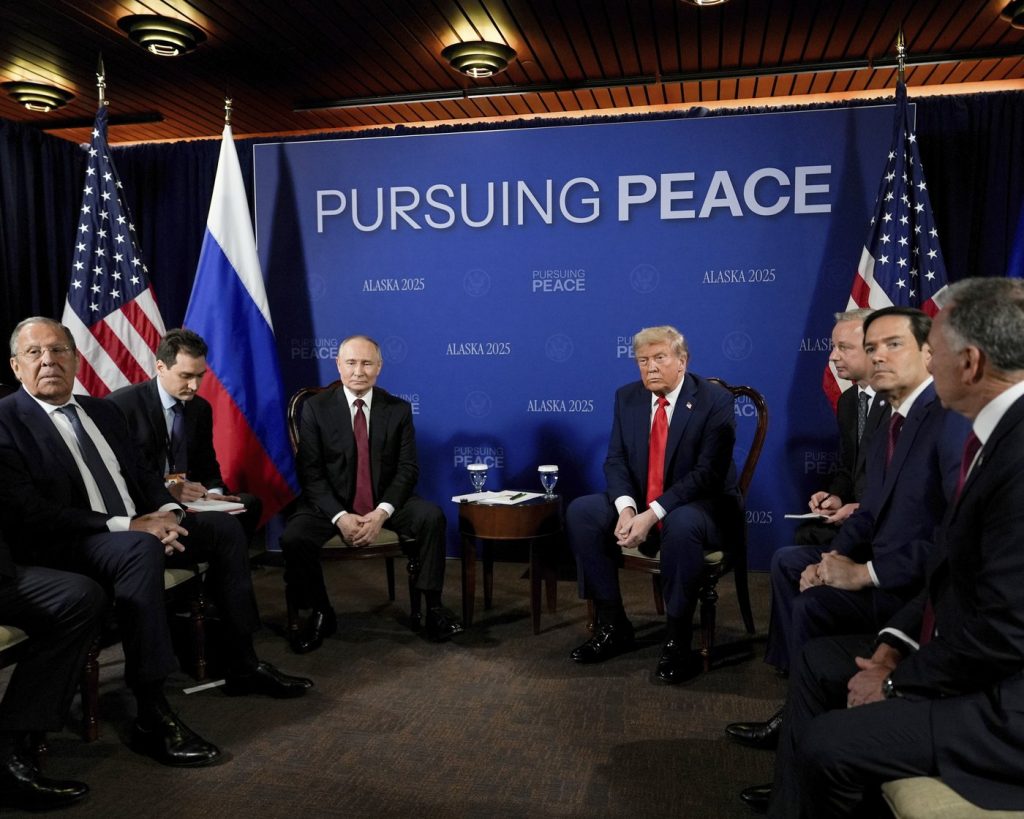NEW YORK (AP) — At a recent summit, Russian President Vladimir Putin and U.S. President Donald Trump made significant progress toward offering Ukraine enhanced security guarantees. Special U.S. envoy Steve Witkoff revealed on Sunday that the agreement allows the United States and its European allies to provide Ukraine with a security guarantee akin to NATO's Article 5 collective defense mandate. This arrangement could serve as a pivotal component in negotiations to bring an end to the ongoing 3 1/2-year war in Ukraine.
Witkoff noted that the Russians' acceptance of the security guarantees was unprecedented and described it as "game-changing." Under Article 5, any armed attack against one or more NATO members is considered an attack against all members, which significantly bolsters Ukraine’s security posture as Russia has long opposed its NATO membership.
The discussions took place on Friday at a military base in Alaska, where Witkoff, alongside Secretary of State Marco Rubio, participated in dialogues aimed at establishing a peace framework. While he did not disclose many specifics about the agreement, he highlighted a notable shift in Russia's position regarding Ukraine's security. Witkoff also mentioned other agreements, including a commitment from Russia not to attack additional European countries.
European Commission President Ursula von der Leyen expressed gratitude for Trump's willingness to extend Article 5-like security guarantees to Ukraine. At a joint news conference with Ukrainian President Volodymyr Zelenskyy, she affirmed that the "Coalition of the willing," which includes the European Union, is ready to support these efforts. Zelenskyy emphasized the importance of clear details concerning the roles of the U.S. and Europe in providing these security guarantees, including the potential for EU accession as part of the security strategy.
Witkoff defended Trump’s decision to shift focus from an immediate ceasefire to negotiating broader peace terms, stating significant progress was achieved during the summit. He said that many critical topics necessary for a peace agreement were covered, indicating a potential for moderation on Russia's part concerning a final peace deal.
Rubio echoed this sentiment in various Sunday news appearances, reiterating that there would not be any kind of truce reached in this summit since Ukraine was not represented at the meeting. Highlighting the urgency, he remarked that if a peace agreement is not established, there will be consequences, although imposing new U.S. sanctions on Russia may hinder diplomatic efforts.
Despite acknowledging the complexity of the negotiations, Rubio stated that the summit identified potential areas of agreement while also recognizing significant disagreements that remain. Expecting a subsequent meeting with Zelenskyy and European leaders at the White House, Witkoff maintained optimism about future discussions, particularly regarding the contentious issues of land swaps that are ultimately under Ukrainian control.
The proactive dialogues between the U.S., Russia, and its European allies signal a new chapter in diplomatic efforts to resolve the war in Ukraine, with leaders expressing hope for tangible advancements in security guarantees and peace negotiations.











